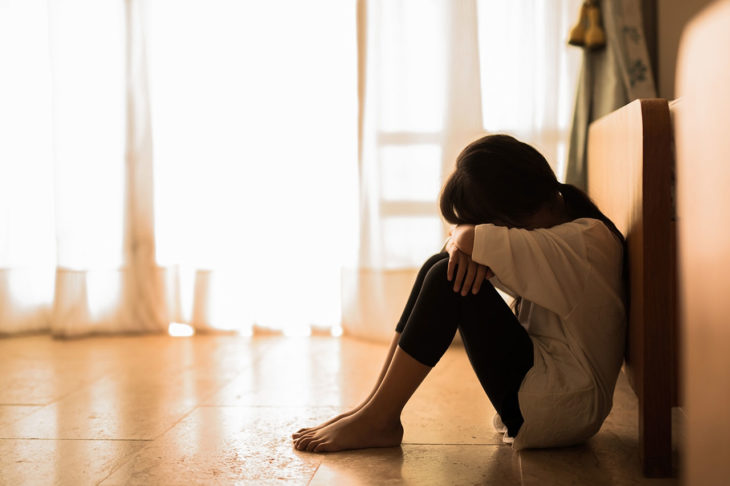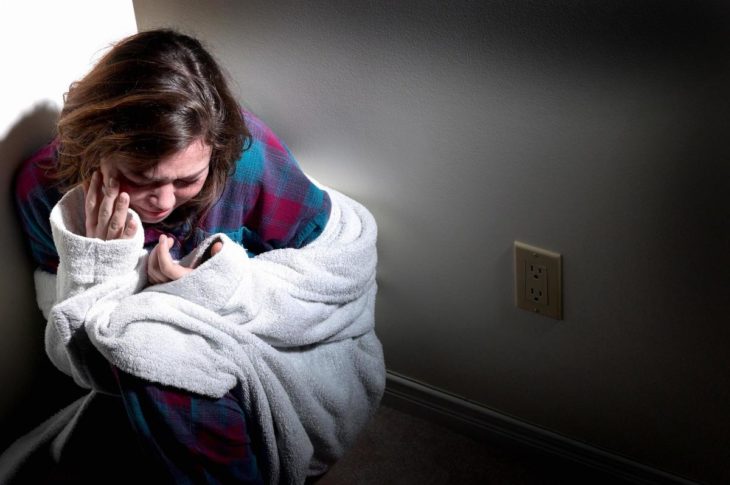Yesterday, two of the other lady blogs wrestled over the politics of asking victims of domestic violence why they stayed with their abusers. Are you a bad feminist if you ask someone—say, someone like me—why she stayed with the guy who beat the crap out of her, nearly murdered her, and raped her on a regular basis?
Double X’s Linda Hirshman says why? is a question that every feminist should pose to their battered sisters. Jezebel’s Megan Carpentier calls Hirschman out for being a judgmental bitch with a superiority complex. While I tend to agree with Megan, feminist or not, it’s an understandable question. (And one, many years later, I still can’t answer.)
It’s natural that when we hear about a crime, we feel a need to distance ourselves from it. There’s been a recent uptick in robberies in my neighborhood and as I scan the police blotter, I find myself rationalizing that the person probably got mugged because they were talking on their iPhone and not paying attention. Or the criminals picked that other dude to kidnap because it was 4 a.m. and he was drunk. I’m never out at 4 a.m. anymore—therefore it’ll never happen to me.
So yeah, on one hand I understand the urge to ask why. If only to reassure ourselves that it could never happen to us. But I also understand that asking someone who’s been punched in the face repeatedly, kicked nearly unconscious, cut, sodomized, and humiliated in a hundred different horrifying ways, is not one bit helpful. What would the right answer be? I stay because I’m a useless piece of s**t who doesn’t deserve love or kindness?

Source: salvationarmyusa
Because that’s probably the answer you’d get. It’s certainly the one I would’ve given all those years ago.
Besides, don’t you think these women are wondering why themselves? Even more than the brutality my abuser inflicted upon me, my most vivid memories from this time in my life are of the now-incomprehensible trifecta of humiliation, extreme self-loathing and, believe it or not, guilt.
Guilt might not make sense to someone on the outside looking in, but the sense that you’re somehow responsible for your abuse is overwhelming. So when we ask a woman why she’s staying in an abusive relationship, it just makes her feel worse about herself.
So what should we do? I think back and wonder what, if anything, anyone could have said or done to help me out of such a sad situation.
1. My boyfriend’s parents knew what was happening. They saw it first-hand. Perhaps if they had relied on mental health professionals instead of prayer, they could’ve actually helped their deeply disturbed son and saved the female population from another violent predator.
2. My parents saw my black eyes and bruises, but I lied to cover them up. I don’t blame my mom and dad because though they hated my boyfriend, I doubt they wanted to believe this was happening to their kid. We had a highly contentious relationship and short of having me institutionalized the only thing they could’ve done was foster a nurturing, mutually respectful relationship from the jump, and by my teen years, that ship had sailed.
3. The woman on the street who saw me being beaten and asked if I wanted her to call the police should’ve just called. If I answered yes, I could very well have gotten myself killed. Even though I like to think it would have ended things, I have no idea if police intervention would’ve done the trick or if I would’ve wound up like one of those sad battered women you see on “Cops,” screaming at the po-po to leave her man alone.

Source: thetelegraphandargus
4. A complete stranger saw me walk away crying after my boyfriend slugged me in front of a crowd of people (who said nothing). She took me by the arm, led me into a small café, sat me down and ordered me a Coke. She told me she understood what I was going through and that I had to believe I deserved to be treated better than the way he was treating me. She understood it was hard to leave someone you loved, but that ultimately I was going to find the strength to do it. She didn’t know me, but she had faith in me.
I just sat there and sobbed. Just a few minutes of kindness and empathy from a stranger had a profound effect on me. I wish I could say that I got up from that table, left him, and never looked back, but I didn’t. I stuck around for a while longer, but her words stayed with me and I eventually proved her right.
Imagine if that same woman had pulled a Lynn Hirshman and had instead spent those few minutes hectoring me about my poor choices and questioning my feminist credentials. While perhaps her intention would’ve been to shame me out of my quagmire, I’ve no doubt the result would’ve been to simply bury me deeper.
Original by: Judy McGuire
